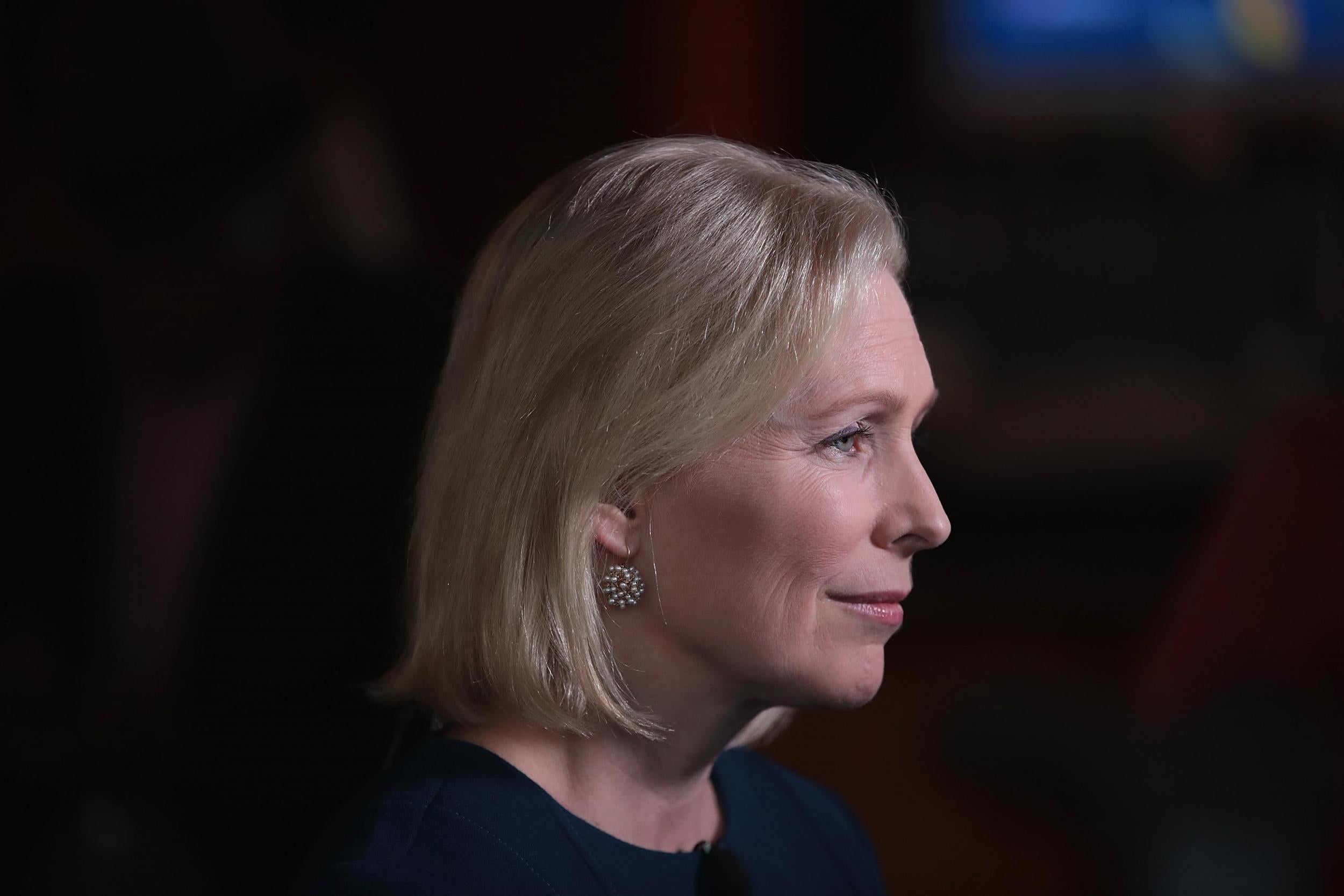Kirsten Gillibrand unveils new 'Democracy Dollars' plan to give US voters $200 every election
Candidates who accept Democracy Dollars would have to pledge to take no more than $200 per donation

Your support helps us to tell the story
From reproductive rights to climate change to Big Tech, The Independent is on the ground when the story is developing. Whether it's investigating the financials of Elon Musk's pro-Trump PAC or producing our latest documentary, 'The A Word', which shines a light on the American women fighting for reproductive rights, we know how important it is to parse out the facts from the messaging.
At such a critical moment in US history, we need reporters on the ground. Your donation allows us to keep sending journalists to speak to both sides of the story.
The Independent is trusted by Americans across the entire political spectrum. And unlike many other quality news outlets, we choose not to lock Americans out of our reporting and analysis with paywalls. We believe quality journalism should be available to everyone, paid for by those who can afford it.
Your support makes all the difference.Senator Kirsten Gillibrand has unveiled a plan to give registered voters $200 each to donate to federal elections.
Explained in a Medium post on Wednesday, the proposed Clean Elections Plan is Senator Gillibrand’s first major policy reveal in her primary run for the Democratic 2020 candidate.
The plan would give participants vouchers, called “Democracy Dollars,” to donate $200 per election to House, Senate, and presidential races, for a total of $600 per participant.
To receive donations from Democracy Dollars, candidates would have to opt out of taking any donations over $200, a significant decrease from the current $2,800 limit.
Senator Gillibrand explained that her plan is modelled after a similar plan in place in Seattle, Washington, which began in 2015. That plan, called the Democracy Voucher Program, gives registered voters four vouchers for $25 each.
According to the Brennan Center for Justice at NYU School of Law, Seattle’s voucher program “dramatically increased the number of Seattle residents participating in the campaign finance system.” However, the Center found that donations received by vouchers still mirrored the typical pattern of donations in the area, with significantly higher donations received from “white, middle- and high-income households, and older Seattle residents.”
Senator Gillibrand says she hopes Democracy Dollars will work against that trajectory, however. Her reason for pushing the plan is to empower “young people, women, and people of colour.”
Senator Gillibrand plans to pay for Democracy Dollars by eliminating “the loophole that makes taxpayers subsidize excessively high CEO compensation,” which she says would raise $60 billion in ten years.
Campaign finance reform is one of many issues that’s jumped to the forefront of the Democratic primary, after 2018’s midterm elections placed an emphasis on small donations and pledges against taking money from large corporations.
In her own campaign, Senator Gillibrand filed $3 million raised in the first quarter of the year, a lower amount than the considered frontrunners.
Join our commenting forum
Join thought-provoking conversations, follow other Independent readers and see their replies
Comments